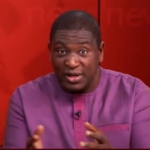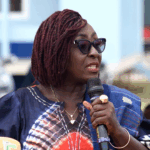
In recent years, Ghana has witnessed a troubling pattern of corruption scandals that have eroded public trust and exposed deep flaws in our internal control systems. From the National Cathedral project to the multi-million cedi Strategic Mobilisation Ghana Ltd (SML) contract, and the questionable spending at the Ghana National Signals Bureau, the same question keeps surfacing: where were the internal auditors?
These recurring failures are not simply oversights; they are symptoms of a broken system. Ghana’s current internal audit structure is outdated, compromised, and ineffective. While external audits and anti-corruption agencies often act after the damage is done, the real opportunity to detect fraud lies within — at the internal audit level. Unfortunately, this function has been reduced to mere formality in most public institutions.
If Ghana is serious about fighting corruption, we must stop treating internal audit like a ceremonial checkbox and start treating it as the first line of defense it was meant to be.
A System That Can’t Protect Itself
Today, internal audit units are embedded within ministries, departments, and agencies (MDAs), reporting to the very people they are supposed to audit. This lack of independence breeds conflict of interest, suppression of audit findings, and in some cases, outright complicity. Internal auditors often lack the resources, training, and authority to act effectively. Worse still, their work is rarely visible to the public or to investigative bodies in real time.
The result? Billions of cedis lost annually to procurement violations, unaccounted expenditures, and unchecked financial mismanagement.
Introducing a New Model: IPAAS and PIAF
To address these challenges, I am proposing a bold new approach — the Independent Professionalized Audit-as-a-Service (IPAAS) model, which forms the backbone of a broader reform framework I call the Proactive Integrity Assurance Framework (PIAF).
Here’s how it works:
- Outsourced Internal Audit: Instead of each public agency setting up its own internal audit unit, internal audits will be outsourced to independent, professional audit firms, licensed and regulated by the Institute of Chartered Accountants, Ghana (ICA-Gh).
- Multi-Agency Oversight Committee: The selection, rotation, and supervision of these audit firms will be handled by a high-level committee comprising the Auditor-General, Office of the Special Prosecutor (OSP), EOCO, CHRAJ, Attorney-General, and ICA-Gh.
- Rotation and Independence: Firms will be rotated across institutions periodically to prevent collusion or familiarity. Importantly, the same firm cannot conduct both internal and external audits for the same institution.
4. Digital Transparency: A central online platform will be launched to publish red flags, risk alerts, and audit summaries. Civil society organisations (CSOs), journalists, and citizens will be able to track, audit performance, and trigger calls for investigation.
- Enforcement: Any audit red flags that go unaddressed for a set period will be automatically escalated to anti-corruption agencies for enforcement. Audit firms that breach ethical standards will face license suspension or revocation by ICA-Gh.
Why This Matters
Had this system been in place, it is likely that the red flags surrounding the National Cathedral, including the GH¢2.6 million paid to a “consultant” without a contract, would have been flagged early. The opaque and unapproved SML contracts, which reportedly ballooned to over GH¢1 billion, could have been stopped before execution.
This is not theory. It’s a workable, professional solution that draws on international best practices from countries like Rwanda, Singapore, and Estonia, where public sector integrity is backed by strong internal controls and digital oversight.
Rebuilding Trust, One Audit at a Time
Corruption is not just a moral failure; it is an economic crisis that robs Ghanaians of basic public services, infrastructure, and opportunity. Reforming internal audit may not grab headlines like arrests or exposés do, but it is the most effective way to prevent corruption before it happens.
We cannot afford to continue pouring resources into anti-corruption institutions while leaving the front door wide open to fraud. The time for half-measures is over. Ghana needs a paradigm shift — and that shift starts with how we audit ourselves from the inside.
Call to Action
I urge Parliament, policymakers, civil society, and professionals to support this proposal. Let us build a Ghana where internal audit is no longer an afterthought but a proactive engine of accountability. Let us give citizens access to the truth — not after the damage is done, but before.
–
Paul Ocran (BA, MSc)
Public Finance and Policy Analyst
Email: [email protected]
- President Commissions 36.5 Million Dollars Hospital In The Tain District
- You Will Not Go Free For Killing An Hard Working MP – Akufo-Addo To MP’s Killer
- I Will Lead You To Victory – Ato Forson Assures NDC Supporters
Visit Our Social Media for More




